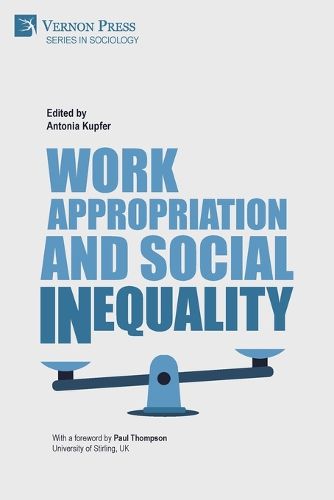Readings Newsletter
Become a Readings Member to make your shopping experience even easier.
Sign in or sign up for free!
You’re not far away from qualifying for FREE standard shipping within Australia
You’ve qualified for FREE standard shipping within Australia
The cart is loading…






This title is printed to order. This book may have been self-published. If so, we cannot guarantee the quality of the content. In the main most books will have gone through the editing process however some may not. We therefore suggest that you be aware of this before ordering this book. If in doubt check either the author or publisher’s details as we are unable to accept any returns unless they are faulty. Please contact us if you have any questions.
This volume is a collection of subject-oriented studies on paid work. Each chapter refers to the social structures that form conditions for peoples’ working contexts and interprets workers’ and employees’ narrations on work. Work appropriation-a process of formation of subjectivity, in which workers and employees relate to the social status of their occupations and the use-value of their work in actively dealing with the work’s content and conditions-serves as a comprehensive concept for each varying subject-oriented approach in the volume.
‘Work Appropriation and Social Inequality’ focuses on social inequality, understood as the distribution of life chances that privilege some and discriminate others and reveals the unequal conditions for, and outcomes of, work appropriation. By analyzing work appropriation, it uses a broader concept than that of ‘meaning of work’ or ‘meaningful work’ as it includes the practice and processes of working. The volume’s subject-oriented approach to work differs from the stream ‘subjectivation’ in going beyond individuals’ desires for self-realization in work and to companies’ requirements of accessing emotional and personal dimensions of their workforce.
The volume contains three parts: the first lays out basic approaches to work appropriation and social inequality, the second analyses current threats to work appropriation in the UK and Germany, and the third consists of a philosophical outlook on work in the Anthropocene.
The book’s impact lies in pushing forward the debate on how work appropriations are linked to unequal social structures. It will therefore appeal to social scientists interested in social inequality, sociology of work and organization, as well as students and teachers at the undergraduate and graduate level in the areas of social sciences.
$9.00 standard shipping within Australia
FREE standard shipping within Australia for orders over $100.00
Express & International shipping calculated at checkout
This title is printed to order. This book may have been self-published. If so, we cannot guarantee the quality of the content. In the main most books will have gone through the editing process however some may not. We therefore suggest that you be aware of this before ordering this book. If in doubt check either the author or publisher’s details as we are unable to accept any returns unless they are faulty. Please contact us if you have any questions.
This volume is a collection of subject-oriented studies on paid work. Each chapter refers to the social structures that form conditions for peoples’ working contexts and interprets workers’ and employees’ narrations on work. Work appropriation-a process of formation of subjectivity, in which workers and employees relate to the social status of their occupations and the use-value of their work in actively dealing with the work’s content and conditions-serves as a comprehensive concept for each varying subject-oriented approach in the volume.
‘Work Appropriation and Social Inequality’ focuses on social inequality, understood as the distribution of life chances that privilege some and discriminate others and reveals the unequal conditions for, and outcomes of, work appropriation. By analyzing work appropriation, it uses a broader concept than that of ‘meaning of work’ or ‘meaningful work’ as it includes the practice and processes of working. The volume’s subject-oriented approach to work differs from the stream ‘subjectivation’ in going beyond individuals’ desires for self-realization in work and to companies’ requirements of accessing emotional and personal dimensions of their workforce.
The volume contains three parts: the first lays out basic approaches to work appropriation and social inequality, the second analyses current threats to work appropriation in the UK and Germany, and the third consists of a philosophical outlook on work in the Anthropocene.
The book’s impact lies in pushing forward the debate on how work appropriations are linked to unequal social structures. It will therefore appeal to social scientists interested in social inequality, sociology of work and organization, as well as students and teachers at the undergraduate and graduate level in the areas of social sciences.